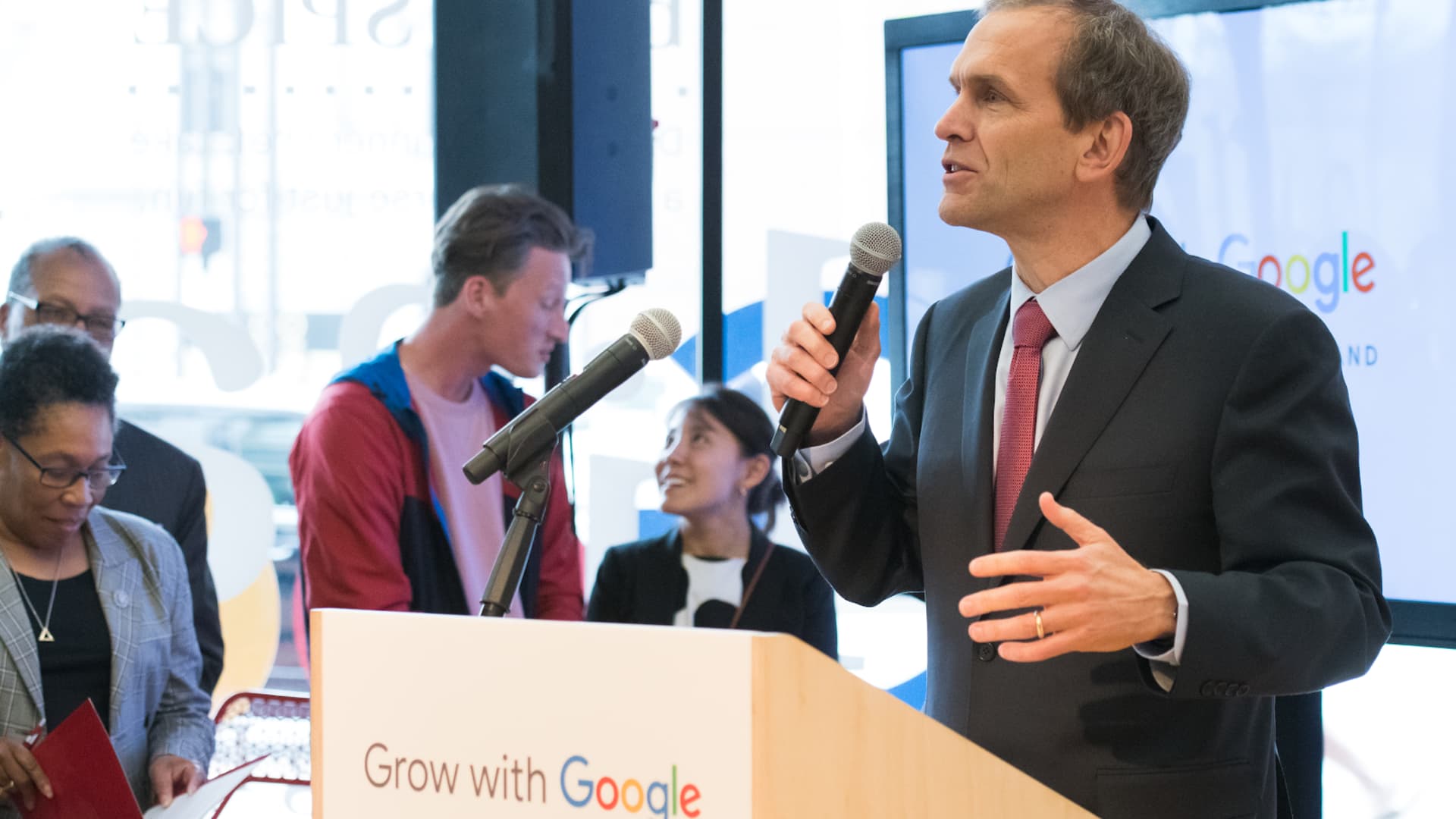Google previewed Friday how it plans to fight off the U.S. government’s charges of illegal monopolization when it goes to trial in D.C. District Court next week.
The trial marks the first major tech antimonopoly case in the U.S. in decades, after the Department of Justice successfully argued Microsoft had violated antitrust law more than 20 years ago.
The DOJ and a coalition of state attorneys general allege in this case that Google used exclusionary contracts with browser-makers like Apple and phone manufacturers that use its Android operating system to cut off rivals from access to the general search market. The states will also argue that Google failed to make its search advertising tool interoperable with Microsoft’s Bing, in order to allegedly keep advertising spending limited to its own services.
Google has maintained that the government’s case is “deeply flawed.” Here are the key elements of its defense, as laid out by Google President of Global Affairs Kent Walker in a blog post on Friday:
- Google’s distribution agreements haven’t harmed competition for search, as evidenced by the wide range of services that offer search tools. Walker points to platforms like TikTok, Reddit, Instagram and Amazon — a larger group than direct competitors like Microsoft’s Bing and DuckDuckGo that the government considers part of the relevant market.
- It’s browser and device makers that choose to feature default search engines in the first place, and they chose Google “based on the quality of our products,” according to Walker. He pointed to Apple CEO Tim Cook’s comments in 2018 that Google’s search engine is the “best.”
- Google isn’t the only company that pays for prominent placement on browsers, Walker wrote. Bing and Yahoo! also pay to be featured in Apple’s Safari.
- Google’s payments to device makers and carriers to promote its search product and browser are just marketing, per Walker, similar to a cereal brand paying a supermarket to place its boxes at eye-level on the shelf.
- Consumers can easily change search engine defaults on their devices if they prefer another service. Google says it takes as few as two clicks to change the default on Safari’s desktop version and just a few more than that on mobile devices. Walker wrote that consumers showed a willingness to do this in 2014, when many Mozilla users switched their default from Yahoo! to Google.
- In order to make its search ad tool as interoperable as states seem to believe it should be, Google would have to prioritize creating features for Microsoft over demands of its own customers, Walker wrote. He added, “American law doesn’t require putting the preferences of your competitors over those of your clients. And Microsoft, which has plenty of resources, has chosen not to build its own search engine management tool.”
The DOJ and the Colorado state AG’s office, which is leading the states’ case, did not immediately respond to requests for comment.
